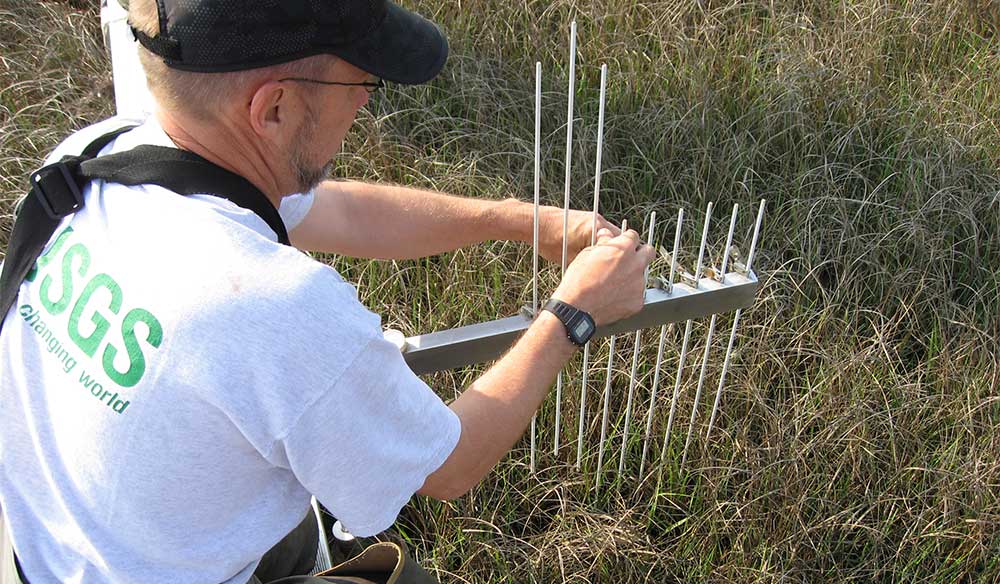June 2019
Introduction

The North Atlantic Coast Cooperative Ecosystem Studies Unit (NAC CESU) maintains and periodically revises several documents that serve to guide operations of the program in an efficient and productive manner. The Cooperative and Joint Venture Agreement describes the basic elements of a cooperative relationship, states the function of federal partners, non-federal partners, and the host university, and provides a framework to transfer funds from federal agencies to non-federal partners. The Role and Mission Statement identifies the biogeographic scope and highlights the research, technical assistance, and education disciplines that are addressed by the NAC CESU. The Strategic Plan identifies specific goals, objectives, and actions proposed to be accomplished over a five-year period.
Each is a standalone document but intended to be reviewed collectively to gain a full appreciation for the purpose, activities, and administrative operation of the NAC CESU. The Strategic Plan (2019 – 2024) is presented here and revised at five-year intervals, or more frequently if necessary. This Strategic Plan presents NAC CESU goals, objectives, and proposed actions for the 2019 – 2024 period.
Goals and Objectives (2019 – 2024)
Demonstrate Excellence in Research and Technical Assistance
- Federal and non-federal partners collaborate to identify and describe research needs
- Provide technical assistance, training, planning support, issue reviews, and other needed services that are timely and relevant to critical needs
- Conduct research that informs the preservation, management, and restoration goals of federal agencies
- Conduct research that meets and exceeds the scientific standards of peers
Facilitate Student Education and Career-Enhancement
- Provide experiential learning opportunities for undergraduate and graduate-level students to participate in developing solutions to resource management challenges
- Provide academic and federal agency mentors for students
- Encourage and provide professional development opportunities for federal scientists and managers through engagement on projects, enrollment in degree programs, and participation in training programs, workshops, seminars, and related activities
- Engage early-career faculty and researchers in NAC CESU activities
Foster Effective Information Exchange, Outreach, and Communication
- Promote widespread dissemination of research, monitoring, and technical assistance findings through publication in professional journals and peer-reviewed agency reports
- Provide all project data to the participating federal agency for incorporation into their data repository
- Maintain a website to facilitate communication and information exchange among CESU partners and broader audiences
- Maintain a project database to track all relevant project documents (e.g., agreements, proposals, progress reports, final reports, publications, presentations, photo galleries)
- Collaborate with agencies to prepare public outreach media to effectively communicate often complex science and resource management issues (e.g., Resource Briefs, Project Summaries, videos, podcasts, partner project highlights)
Facilitate Collaboration and Active Involvement
- Provide opportunities for partners to exchange information and share ideas related to the ongoing and future activities of the NAC CESU
Proposed Actions (2019 – 2024)
Research and Technical Assistance
- Facilitate active communication among federal and non-federal partners to identify emerging research and technical assistance needs
- Inform all non-federal partners of federal agency funding opportunities for research and technical assistance, and respond to the agency requests in a timely manner
- Explore and develop initiatives at the nexus of humanities, social science, economics, and natural science — topics that are underrepresented in NAC CESU activities
Education and Career-Enhancement
- In collaboration with federal partners, develop internship or assistantship opportunities for students, as well as research and outreach opportunities for early-career faculty
- Develop and deliver training opportunities, workshops, and/or seminars for NAC CESU partners
Information Exchange, Outreach, Communication
- Conduct a major revision of the NAC CESU website, with portals to highlight project success and partner accomplishments, funding and program announcements, review partner responsibilities, and archive administrative documents
- Finalize development and implementation of a NAC CESU project database and provide a straightforward mechanism for partners to populate the database
- Finalize development and implementation of a database of experts and provide a straightforward mechanism for partners to populate the database
- Actively participate in development of agency public outreach materials and events as requested
Collaboration and Active Involvement
- Convene annual partners meetings and participate in the National CESU Network Biennial Meetings
- Encourage partners to meet their involvement and administrative responsibilities as outlined in the NAC CESU website
- Through annual meetings, the website, and workshops, request that partners share their notable project findings, accomplishments, and ideas for science directions



